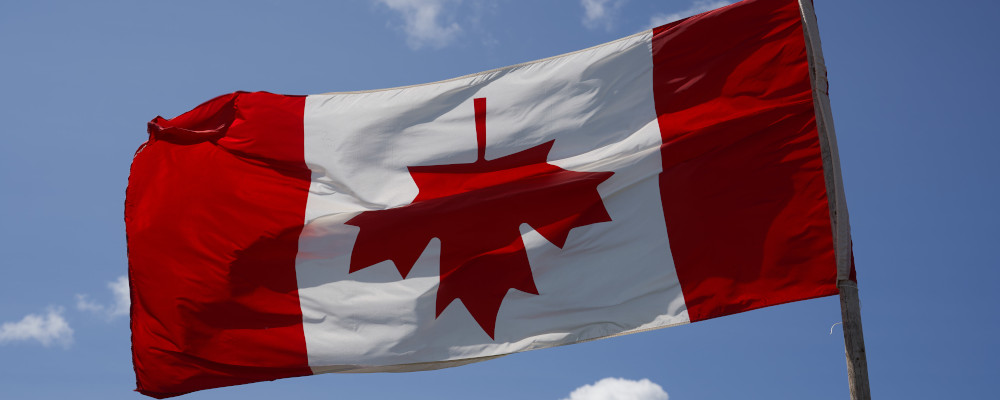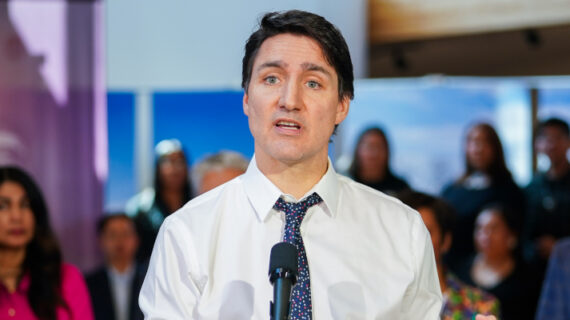Canada finds itself in the throes of a scarcity crisis that threatens the very fabric of our socioeconomic and cultural tapestry. Plunging housing affordability, declining health-care capacity, surging infrastructure costs, and an economy that has stagnated on a per-person basis are not one-off challenges, but alarming indicators of a country teetering on decline. It is stirring a raucous national dialogue about the economy, and the paths ahead for our future.
Earlier this month, The Globe and Mail columnist Andrew Coyne laid out a sobering picture worth repeating: Canada is no longer one of the world’s wealthiest countries. Making the case that the economy has experienced a lost decade, it cited alarming facts, including that real GDP per capita—a measure of national income per person—retreated to levels last seen nine years ago. More alarming is the projection by the OECD that Canada will face the slowest per-person growth of its 38 members through 2060.
Bloomberg columnist Tyler Cowen refuted these concerns on Wednesday, pointing to growth in overall GDP and median incomes and making a compelling case for YIMBY policies to fix skyrocketing housing costs. He implied that Canadians should accept that we can’t produce the attractive jobs or industries that power growth like Americans can. Cowen argued that America will increase its relative lead “no matter what Canada does,” and we should be grateful for the benefits of American innovation. Hogwash.
Cowen’s idea of standard economic performance for Canada belies a generation of underperformance that we’ve accepted as normal. Once standing as the world’s sixth wealthiest country in 1981, Canada now ranks below the OECD median, outpaced by now wealthier peers. The country’s productivity growth, a measure that typically signifies fewer hours of work for equivalent or better income, ranked us as the second lowest over the same period. To bring matters home, in 1990, the median inflation-adjusted income for a single earner aged 25-54 in Toronto was $54,310. In 2023, it was $54,643, an increase of less than 1 percent in 34 years. Meanwhile, the inflation-adjusted costs of homeownership and rent have more than doubled. These facts point to the painful reality of our “zero-sum” economy, where one person’s gain spells another’s loss, a path fraught with potentially severe consequences if not rectified.

A generation of growth without growth
Nowhere is the shift to a zero-sum economy more acutely felt than in Canada’s housing market, where the fundamental dreams of homeownership and the possibility of starting a family have slipped beyond the grasp of most. Skyrocketing prices and soaring rents have entrenched a chasm between the property-owning class and those left floundering in their wake. In housing, older Canadians have effectively cannibalized the future wealth and prospects of the young, hoarding opportunities to maintain their own standard of living at their children’s expense. This compounds the myriad challenges already awaiting the next generation, including the weight of high public debt, aging infrastructure, the financial strain of supporting an increasingly elderly population, and the imperative to address climate change.
The crisis has been dramatically worsened by a constellation of policy blunders. Beyond a mismanaged temporary immigration system, a labyrinth of broken housing policies—marked by draconian land use restrictions, punitive taxation, and byzantine approval processes—is crippling our economy rather than buoying it. These misguided policies exacerbate the housing shortfall while applying intolerable pressure on our infrastructure. All of this occurs within a national context starkly devoid of the requisite economic growth to underpin or broaden the capacity of our systems.
A generation is now coming of age having only experienced an illusion of growth but never the real thing. Canadian cities are bustling with construction, governments are rolling out ambitious (and expensive) infrastructure projects, and housing-rich Canadians have experienced unprecedented gains in net worth that ultimately mask stagnation. This phenomenon, akin to “growth without growth,” reveals a troubling reality: Canada’s economy, propped up by population increases, is not translating into improved living standards for its citizens. This vicious cycle of policy failure and economic stagnation threatens to rip through the threads of Canada’s national identity.
Prolonged scarcity is dangerous territory
Growth is more than just a statistic. It signifies the potential for material well-being to improve across the board, fostering a climate of social trust in business, government, and community. Growth is the bedrock of win-win economic outcomes, where the general condition improves for the majority. Growth raises government capacity by increasing revenues per person without raising taxes. Growth raises capital for business investment without harming consumers. Growth creates competition for people, who benefit from higher wages and greater opportunities. Fundamentally, growth is the objective of optimistic cultures. But, when growth falters, as it has markedly done in Canada, it shifts societal attitudes towards a hoarding mentality. If allowed to fester, zero-sum thinking will erode the Canadian social contract, harm generosity, undermine faith in fairness, encourage anti-social activity (such as rent-seeking and corruption), and could lead Canada to a far uglier place.
The dangers of prolonged economic hardship are not unknown. Recent history offers stark lessons in the form of the Great Depression and post-First World War Weimar Germany, where scarcity led not only to material deprivation but to societal fractures that culminated in one of humanity’s ugliest genocides. While one should not sensationalize, prolonged periods of economic hardship create fertile soil for populists and extremists who capitalize on the pain of communities turned inward; scapegoating outsiders and succumbing to protectionism and nativism. Ugly politics supports ugly policies, which supports ugly politics, becoming a self-reinforcing cycle that is incredibly difficult to stop. Canada, despite its modern advancements, is not shielded from these forces and is not the only liberal democracy facing them.
This scarcity mindset has already led to an unsettling rise in nativism and xenophobia, with reported hate crimes more than doubling since 2015. Immigrants, once celebrated as the lifeblood of our economy, are increasingly blamed for our problems despite the reality that many have been exploited and offered false promises of achieving the Canadian Dream. Additionally, there’s growing intolerance towards marginalized communities, including the LGBTQ+ community, rising antisemitism, and a concerning number of Canadians adopting beliefs in conspiracy theories. These trends signal a decline in open-mindedness and serve as a potential harbinger for the adoption of fringe political ideologies and inward-looking perspectives in the future.

Toward an abundance economy
Despite the current challenges, it is essential to remember that Canada remains an exceedingly wealthy nation, blessed with abundant natural resources, significant capital, strong trading relationships, and a highly educated population that is deeply integrated into the global talent pool. This wealth underscores the shock of our present stagnation, which derives not from external forces but the consequences of our own bad choices.
Zero-sum attitudes now riddle our political and economic discourse and fundamentally contradict the tenets of liberal democratic capitalism in Canada, which has historically championed a positive-sum worldview. A blueprint for Canadian prosperity is there should we choose to adopt it: it requires the melding of political and economic freedoms with security, safety, and opportunity, all underpinned by robust property rights, a welfare state that uplifts without stifling, and a government that facilitates rather than dictates.
The antidote to our challenges is to embrace an “abundance” mindset. This implies a political priority to ensure that the essentials for robust social health—such as housing, energy, health care, and transportation—are plentiful and give people options. Systemic reforms must address the housing crisis head-on, significantly boost productivity, and ensure that the basics—crucial for a high-quality life—are within everyone’s reach.
Achieving these outcomes demands leadership and bold action, including the possibility of the federal government devolving taxation powers to provinces in exchange for reforms. Such reforms should aim to eliminate interprovincial trade barriers, clarify jurisdictions, centralize regulatory frameworks, boost competition in Canada’s private sector, revamp land use and municipal governance, and reform the tax code. Furthermore, there’s an urgent need to overhaul public infrastructure procurement and construction practices, where poor state capacity has unnecessarily inflated the cost of building social and physical infrastructure. The challenge we face is not the magnitude of government expenditure but the extent of its overcomplication, overreach, and waste.
By weaving together the principles of liberal democracy with an ethos of abundance, Canada has the opportunity to rejuvenate its economy and reforge a path toward widespread prosperity. Crucially, immediate action is necessary to avert the onset of a negative feedback loop, where economic, social, political, and cultural downturns become intertwined and self-perpetuating. Canada’s potential future is beautiful, contingent on our collective desire and resolve to break out of this zero-sum economy threatening to hold us back. This future requires a collective commitment to dismantling systemic barriers that impede progress. Canada’s brighter tomorrow hinges on our willingness to reimagine and rebuild—a nation where success is common, prosperity is shared, diversity is celebrated, and everyone can thrive.




